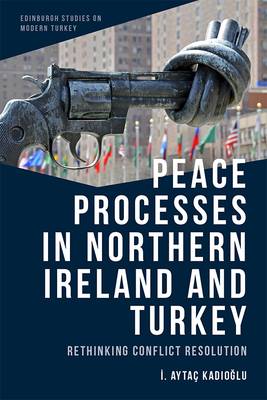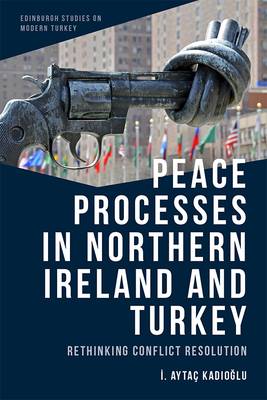
- Retrait gratuit dans votre magasin Club
- 7.000.000 titres dans notre catalogue
- Payer en toute sécurité
- Toujours un magasin près de chez vous
- Retrait gratuit dans votre magasin Club
- 7.000.000 titres dans notre catalogue
- Payer en toute sécurité
- Toujours un magasin près de chez vous
Description
This book challenges the notion of 'conflict resolution' in the Northern Irish and Turkish-Kurdish peace processes, both far-reaching ethno-nationalist conflicts in the post-Cold War era. Incorporating fieldwork carried out until 2015, İ. Aytaç Kadıoğlu compares these conflicts during major peace attempts, from early secret talks and semi-official peace initiatives, to multilateral and internationalised conflict-resolution processes through not only main armed protagonists, but also independent third parties.
As Brexit re-ignites discussion around the border of Northern Ireland, and as the repercussions of the Syrian civil war on the dynamics of the Kurdish conflict continue to unfold, these two cases are particularly important to the study of conflict resolution. In critically assessing existing literature, this book presents an innovative framework for conflict-resolution processes, suggesting that ethno-nationalist conflicts are too complex to be resolved solely through official negotiations.
Spécifications
Parties prenantes
- Auteur(s) :
- Editeur:
Contenu
- Nombre de pages :
- 304
- Langue:
- Anglais
- Collection :
Caractéristiques
- EAN:
- 9781474479332
- Date de parution :
- 25-08-22
- Format:
- Livre broché
- Format numérique:
- Trade paperback (VS)
- Dimensions :
- 156 mm x 234 mm
- Poids :
- 426 g







